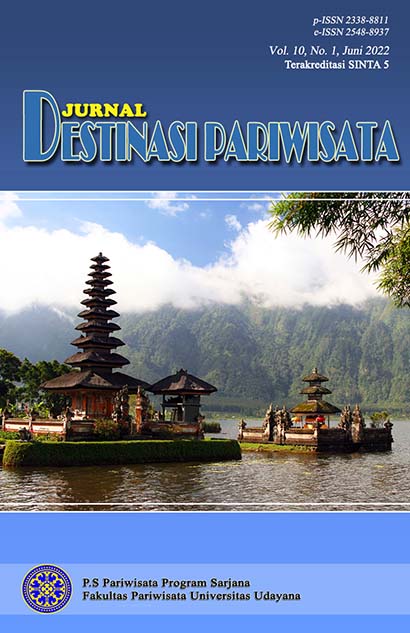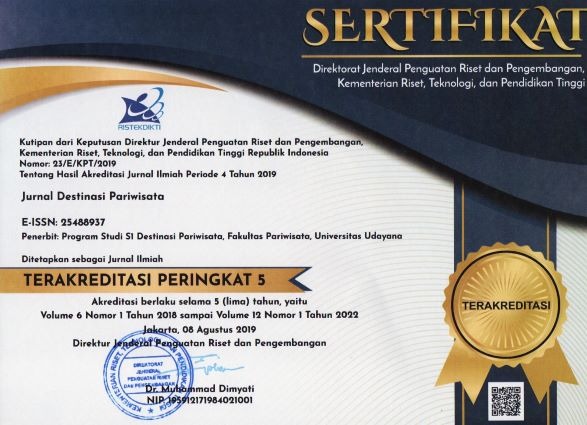Potensi Dan Pengembangan Mahakam Riverside Market Melalui Community-Based Tourism
Abstract
The existence of Mahakam Riverside Market (MARIMAR) as a forum that aims to improve the
economy in Samarinda City becomes a very interesting object and has the potential to become a new
tourist attraction in Samarinda City. MARIMAR has had both positive and negative impacts on society.
The resulting positive impacts include increasing the economy and public welfare. However, on the
other hand, the opening of tourism like this certainly has a negative impact such as environmental
damage, air pollution and a decrease in water and environmental quality. This study aims to analyze
the Mahakam Riverside Market (MARIMAR) development strategy through community-based tourism
(CBT). This research is a qualitative descriptive research with a naturalistic research design. The data
analysis used is Tourism Component Analysis 4A and SWOT Analysis. The results of the analysis show
that Mahakam Riverside Market (MARIMAR) has strong potential to be developed into a tourist area
through local community empowerment (CBT). Empowerment of local communities can be done in 3
stages, namely enabling (capacity building), empowering, and protecting (maintaining).
Keyword: Mahakam Riverside Market; community-based tourism; Mahakam River; Samarinda
Downloads









